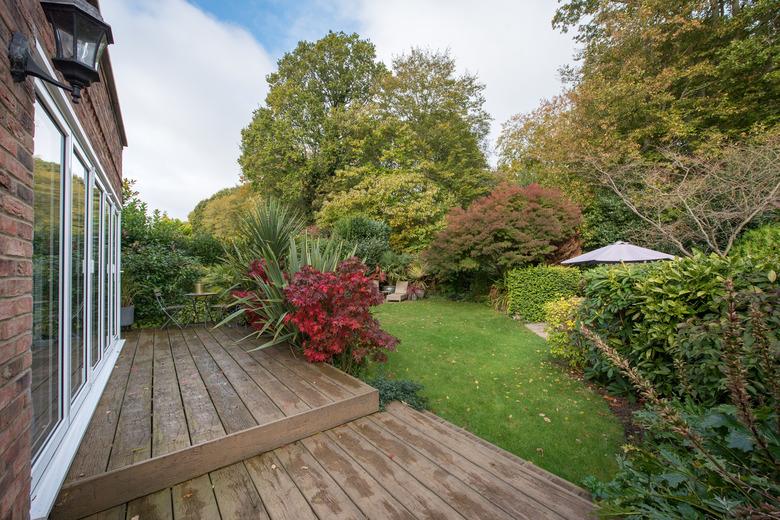Problems With Balau Decking
Balau decking is chosen for its rich hue and minimal knotting. This wood can stand up to heavy use, allowing it to survive the years of trampling it will receive as part of your deck. There are some negatives associated with the use of balau decking, however. Before you invest in decking material of this type, consider the drawbacks associated with it.
Avoid Improper Drying
Before it is ready for use in decking, balau wood must move through a specific drying process to ensure that it doesn't crack or warp. Balau wood is generally kiln-dried for 30 to 60 days. After it has undergone kiln-drying, the wood is dried in the sun for several days to produce its yellowy-orange hue. If balau producers do not follow this procedure properly, they run the risk of dramatically reducing the lifespan of the wood. Since it is difficult for a consumer to determine whether balau has been properly dried, it is best to only purchase this type of decking from highly reputable merchants.
Balau Wood Is Expensive
Balau wood is not native to North America. These trees grow in hilly regions of Southeast Asia, so any balau wood used in American decking must be imported. Because the wood is imported, it is generally more expensive than domestic woods such as oak and pine. Particularly for decking, where a large quantity of wood is needed, this extra cost can be prohibitive.
Seal Wood to Prevent Staining
Balau decking is highly porous, so any spills will absorb into the wood if the stain is not wiped up immediately. If you intend to use your deck as an outdoor eating space, you must guard against spills and wipe them up promptly to avoid staining. Also, if your deck is surrounded by plants that drop fruit-covered seeds, these seeds could mar the appearance of your balau decking if you fail to take proper precautions. If fruit-bearing trees surround your balau deck, sealing the deck will likely prove the safest option.
Maintaining and Upkeeping Balau Wood
Balau wood is similar to teak in its maintenance requirements. Because this wood is naturally oily, unfinished balau must be oiled regularly. If your balau deck is exposed to direct sunlight for much of the day, the wood can become parched and cracked if you don't oil it at least annually. Sealed balau does not need annual oiling, as the sealant holds in the wood's natural oils. However, if you sand away an old layer of sealant and don't reseal it immediately, you should oil the surface to protect it until you seal again.
